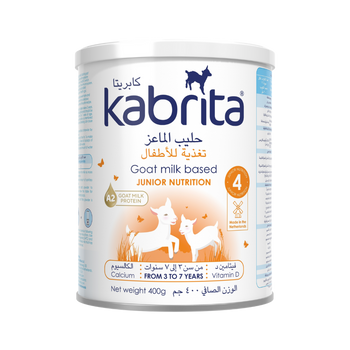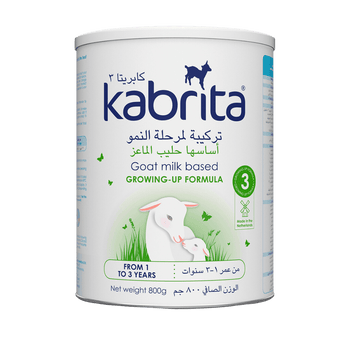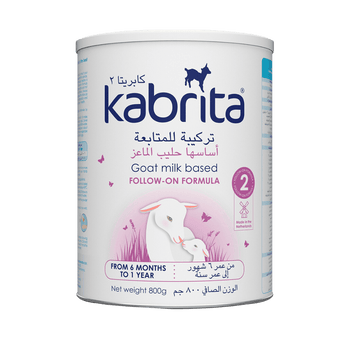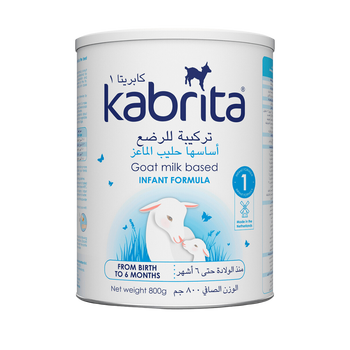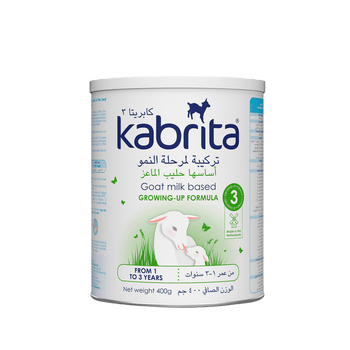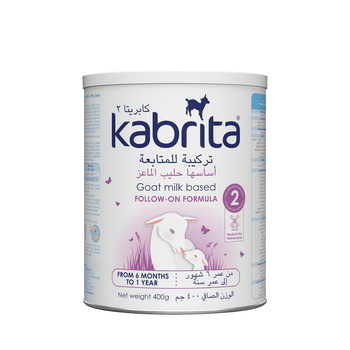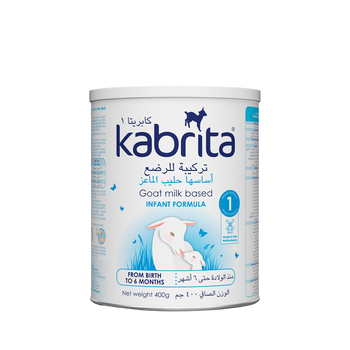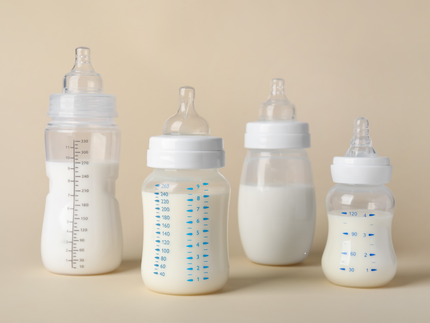Goat's Milk vs. Cow's Milk Digestion: How long does it take to digest milk?

When it comes to feeding babies, choosing the right type of milk is crucial for their growth and well-being. While breast milk is often considered the best option, some parents may need to rely on alternative sources, such as formula milk.
Understanding how long it takes for these milk types to be digested is essential for ensuring proper nutrition and minimizing digestive issues in infants. In this blog post, we will explore the digestion process of goat's milk and cow's milk in babies, shedding light on the differences between the two.
The Digestion Process in Babies
Infants have developing digestive systems that are sensitive and delicate. The process of milk digestion in babies involves enzymes and immature digestive organs adapting to handle various nutrients.
Lactose
Lactose, the sugar present in milk, requires the enzyme lactase to be broken down into simpler sugars, which can then be absorbed by the baby's body.
Proteins
There are two main groups of proteins in cow and goat milk: whey and casein.
Whey and casein both are composed of smaller, diverse micro-proteins. Whey proteins dissolve easily in water, while casein proteins aggregate into small clumps/molecules, to be soluble.
The acidic environment of the stomach helps break down whey and casein proteins; Whey proteins remain liquid in the stomach, and casein proteins 'clump' to form the curd.
Curd of milk in the abdomen
There are several factors that contribute to the quality of the curds formed by casein proteins in the stomach, such as the number of a specific microprotein structure, alphaS1-casein, along with the size of the casein protein particles.
The higher amount of alpha-S1-casein protein in cow's milk, along with the smaller casein particle size, results in larger, stiffer curds. The combination of less alpha-S1-casein and a larger particle size of casein protein, as in goat 's milk, results in smaller, softer and smoother curds.
Smaller, softer, and smoother curds, such as those formed in goat's milk protein, are usually easier to digest.
Goat's Milk Digestion in Babies
Goat's milk is often considered a suitable alternative for babies who cannot be breastfed or have difficulties digesting cow's milk. The smaller fat globules found in goat's milk make it easier for babies to digest, reducing the strain on their developing digestive systems.
Moreover, goat's milk contains the A2 milk protein, which is easier to digest and reduces the chances of allergic reactions or digestive discomfort in some infants. These factors contribute to the perception that goat's milk is gentler on a baby's digestive system, potentially reducing the risk of colic, gas, or other digestive issues.
Cow's Milk Digestion in Babies
Cow's milk is commonly used in infant formula and can provide essential nutrients for babies. However, the larger fat globules and higher levels of alpha-s1 casein in cow's milk can pose challenges for a baby's immature digestive system. These factors may result in slower digestion and an increased risk of allergic reactions or gastrointestinal discomfort in some infants.
How Long Does It Take to Digest Milk?
The digestion time for milk in babies can vary from one infant to another. On average, it takes approximately 2 to 3 hours for milk to be fully digested in infants. This timeline applies to both goat's milk and cow's milk, indicating that the overall digestion time is similar for these two milk types.
However, considering the differences in protein and fat composition, goat's milk may be better tolerated by some babies, especially those with sensitivity to cow's milk or digestive issues. It's important to note that introducing any new milk to a baby's diet should be done under the guidance of a pediatrician to ensure proper nutrition and monitor for any adverse reactions.
Kabrita Digestion: What Does the Science Say
A study published in the Journal of Pediatric Gastroenterology and Nutrition compared the mechanism of digestion in breast milk, compared to cow's milk and goat's milk for infants. The result of the study showed that the protein digestion mechanism of Kabrita goat milk for infants is similar to the protein digestion mechanism in breast milk, while the protein digestion mechanism in infant cow's milk lags behind in this comparison.
Other research has shown that goat's milk proteins degrade faster than cow's milk proteins in both the stomach and small intestine. Goat whey, in particular, is broken down and hydrolyzed more quickly than cow's milk whey.
Baby Tummy Troubles
A useful starting point to see a possible relationship between foods and symptoms is to keep a diet diary for 7 days (keep in mind that it may take a few days for symptoms related to food triggers to appear and develop). Since goat's milk protein forms a gentler coagulant in the tummy than cow's milk protein, it may be an ideal solution for children with tummy troubles associated with cow's milk consumption*. For a more in-depth look at minor problems in young children, please visit our Symptoms Spotlight pages.
Conclusion
Selecting the right milk for babies is crucial for their optimal growth and well-being. While breast milk is recommended as the primary source of nutrition, alternatives like goat's milk and cow's milk can be considered under appropriate circumstances.
Parents don't like to see their little ones suffer from uncomfortable tummy symptoms. Determining the cause of abdominal trouble may require careful evaluation, so it is essential to work with a health professional.
Always consult with a pediatrician or healthcare professional before introducing any new milk type to a baby's diet. They can provide personalized guidance based on the infant's specific needs and ensure a smooth transition to complementary feeding, prioritizing the baby's health and well-being.
Kabrita Goat Milk Infant Formula may be an ideal choice during transitional stages in feeding, such as weaning or as a supplement to breastfeeding when needed, or for those with minor issues associated with a cow's milk allergy*.
* Not suitable for children with proven allergy to cow's milk protein.
